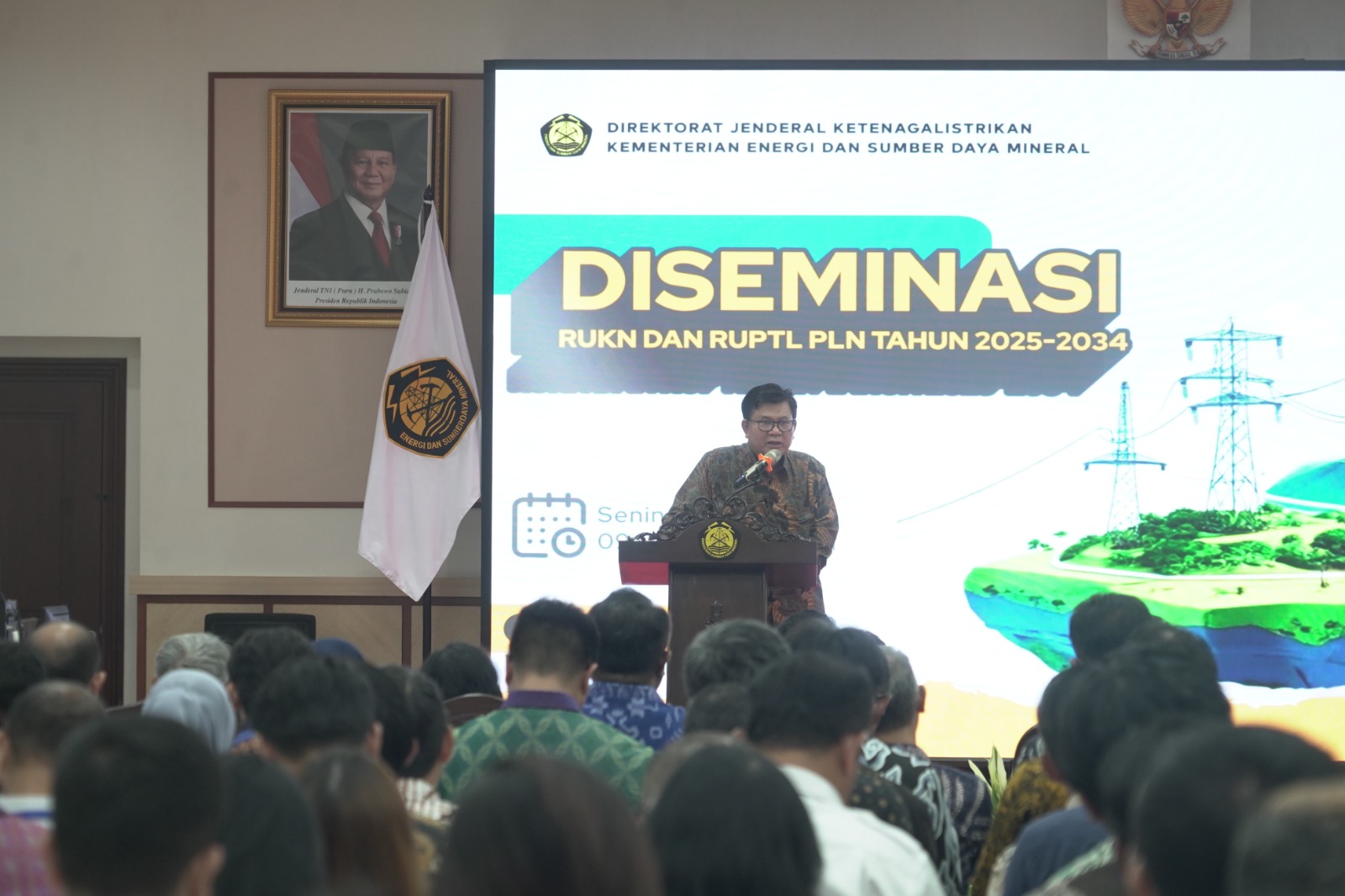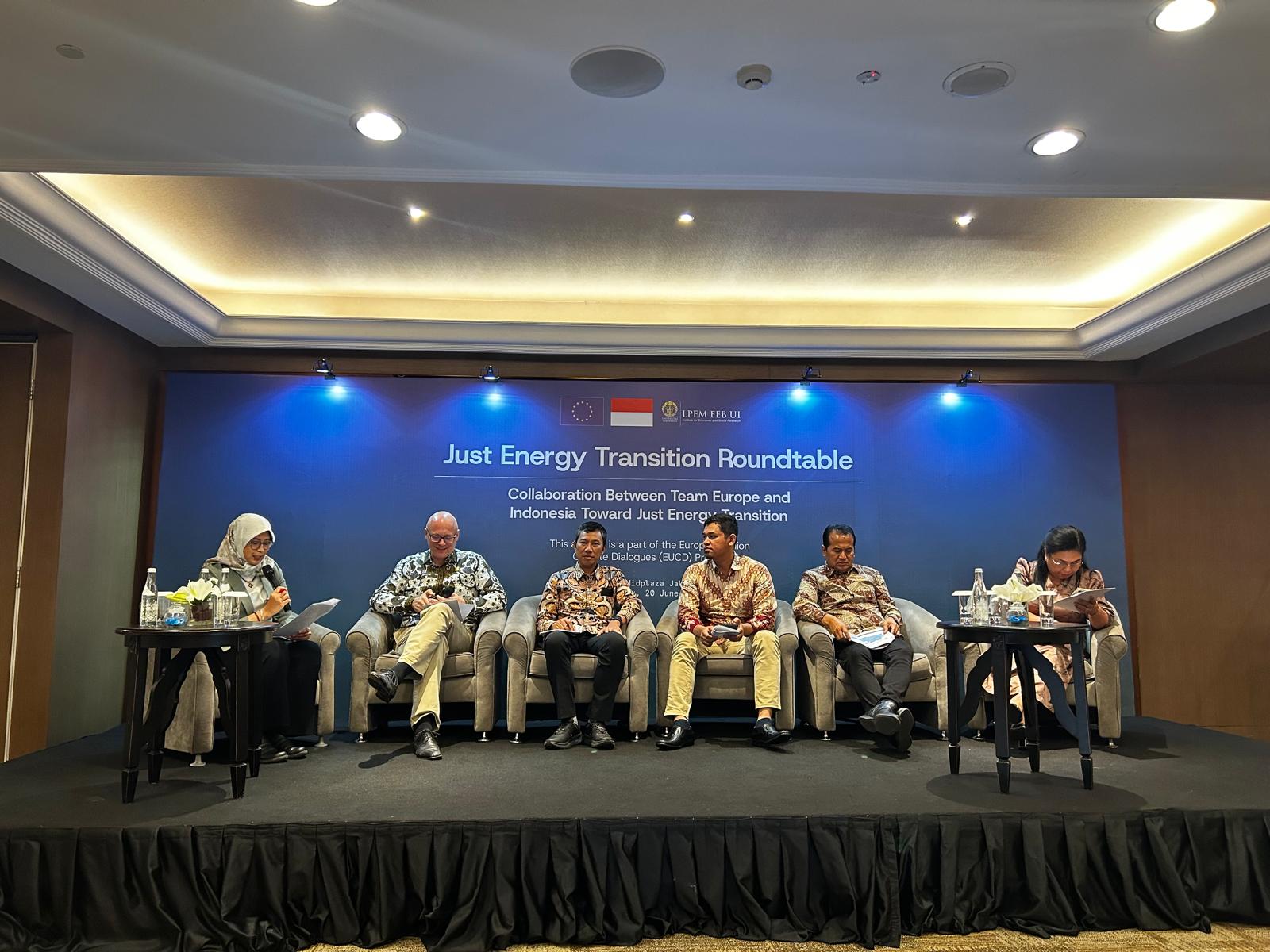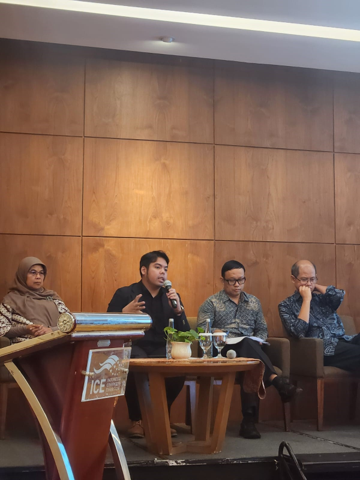Japan RE Invest Indonesia 2024 Marks First Market Outreach for IET Joint Office
Secretariat
02 December 2024
Tokyo, November 27, 2024 – In a key development for Indonesia’s energy transition, the Indonesia Energy Transition Implementation Joint Office (IET Joint Office), also known as Rumah Perancangan Aksi Transisi Energi Nasional (Rumah PATEN), participated in the Japan RE Invest Indonesia 2024 conference. Held at the Embassy of the Republic of Indonesia in Tokyo, this event marked the first market outreach for the IET Joint Office following the introduction (teaser) of the IET Channel on November 22, 2024.
The event, hosted by the Indonesian Embassy in Tokyo (KBRI Tokyo), Tenggara Strategics, and the Center for Strategic and International Studies (CSIS), brought together various stakeholders from Indonesia and Japan’s renewable energy sectors. Key participants included representatives from Indonesia’s Ministry of Energy and Mineral Resources, Ministry of Finance, Ministry of Industry, and PT PLN (Persero), PT PLN Nusantara Power, and PT PLN Indonesia Power. These representatives presented Indonesia’s renewable energy projects and outlined investment opportunities, highlighting the country’s ambitious energy transition goals.
During the opening ceremony, Edo Mahendra, Chairperson of the IET Joint Office, emphasized the importance of streamlined procurement processes for the success of renewable energy projects. He highlighted the event as an important platform for strengthening Indonesia-Japan collaboration, particularly in blended financing models, which can serve as a model for international partnerships in sustainable energy solutions. Mahendra also discussed the role of the IET Channel in creating a one-stop gateway for investors, reducing barriers, and accelerating high-impact renewable energy projects.
The Japan RE Invest Indonesia 2024 was a three-day event designed to showcase Indonesia’s renewable energy potential and foster investment opportunities. On the first day, the event featured a session that provided Japan's investor perspective on renewable energy investment in Indonesia. Participants were also introduced to a showcase of projects by PT PLN, PT PLN Indonesia Power (PLN IP), and PT PLN Nusantara Power (PLN NP), offering valuable insights into Indonesia's energy transition roadmap and the role of the IET Channel in facilitating investments. The session concluded with a preview of the IET Channel, which aims to simplify processes and attract critical investments necessary to support Indonesia’s Net Zero Emissions (NZE) target by 2060.
The business matchmaking session followed, providing an opportunity for direct interactions between prominent Japanese energy developers and representatives from PT PLN, PT PLN Indonesia Power, and PT PLN Nusantara Power. The Japanese companies participating included INPEX Corporation, Tepco Renewable Power, Sumitomo Corporation, Kansai Electric Power, and Mitsubishi Heavy Industries. This session was designed to foster strategic partnerships and explore joint ventures in renewable energy development, further strengthening bilateral cooperation.
On the second day, participants visited two key facilities central to Japan's energy strategy: the Kazunogawa Pumped Storage Power Plant and the ENEOS Tokyo Harumi Hydrogen Station.
The Kazunogawa Pumped Storage Power Plant, owned and operated by TEPCO (Tokyo Electric Power Company), is one of Japan’s largest pumped storage facilities, with an installed capacity of 1,200 MW (3 x 400 MW for Units 1, 2, and 4). Unit 3 is currently under the final stage of development. The plant utilizes pumped hydro storage technology to balance electricity supply and demand. Water is pumped from a lower reservoir to an upper reservoir during periods of low demand and released back through turbines during peak demand, generating electricity. The plant plays a crucial role in stabilizing the grid and facilitating the integration of renewable energy sources.
The ENEOS Tokyo Harumi Hydrogen Station supplies hydrogen produced from renewable sources to fuel cell vehicles and industrial applications. The station is designed to fuel around 24 vehicles per day, with the ability to refill vehicles from empty to full in just a matter of minutes, making it highly efficient. This facility is a significant part of Japan’s hydrogen infrastructure and contributes to reducing emissions in the transport sector.
On the third day, participants visited the Tsuruga Power Plant, owned by the Japan Atomic Power Company, which houses Unit 1 and Unit 2, both pressurized water reactors (PWRs) critical to Japan’s low-carbon energy strategy.
Unit 1, which began operations in 1970, generates electricity through nuclear fission, producing steam to drive turbines. After being shut down for safety evaluations following the 2011 Fukushima Daiichi disaster, Unit 1 underwent extensive safety upgrades to meet modern standards. It has a capacity of 1,130 MW.
Unit 2, which started operations in 1987, also underwent upgrades to enhance operational efficiency and safety. With a capacity of 1,130 MW, Unit 2 plays a vital role in Japan’s energy mix by providing stable, low-emission power generation.
As part of its Accelerated Renewable Energy Development (ARED) program, Indonesia aims to add 39 GW of renewable energy capacity by 2040, requiring an estimated investment of USD 166 billion. Prof. Eniya Listiani Dewi, Director General of Renewable Energy and Energy Conservation at the Ministry of Energy and Mineral Resources, reaffirmed Indonesia's commitment to achieving its Net Zero Emissions (NZE) target. She noted that this effort is driven by GDP growth, increased electrification, and the adoption of industrial carbon capture, utilization, and storage (CCUS) technologies.
Japan, with its expertise in geothermal, solar, and hydropower technologies, remains a key partner in Indonesia's renewable energy transition. As a co-leader of the Indonesia Just Energy Transition Partnership (JETP), Japan is one of the key partners in helping Indonesia unlock new opportunities for renewable energy development.
The event is an important step in bridging gaps between stakeholders, promoting technology transfer, expediting business connections, and accelerating Indonesia’s renewable energy transition. Japan RE Invest Indonesia 2024 proved to be a key moment for strengthening international partnerships and promoting investments and technology transfer to meet Indonesia’s energy goals.
Recent News & Event

Indonesia Speeds Up Energy Transition through CONNECTIVITY Digital Platform
02 June 2025

Rumah PATEN emphasize the Just in Energy Transition
20 June 2024

Indonesia Energy Transition Joint Office Emphazises Maximizing Opportunities through Regulations to Accelerate Decarbonization of Indonesia's Industrial Sector
15 October 2024
